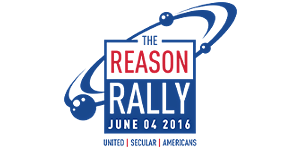Thousands of casino operators comprise the gambling industry. There are titans operating globally. They offer not only captivating entertaining activities but also cooperate with charitable organizations raising billions of dollars for the noble purposes. They give sometimes an indispensable assistance to various foundations. Helping the needful, they are frequently unintentionally in high-volume money laundering activities.
Very often these schemes involve welfare organizations. Unreliable foundations may serve as the end point of money transfers for the frauds. It is no secret that the gaming sector is highly vulnerable to cheaters. Frauds exploit betting houses to realize their purposes. We will describe the ways of generating illegal profits through the house services.
Main Methods of Money Laundering
 Frauds effectively realize various schemes using loopholes in casinos. Most of them involve illegal untracked financial transfers. This is possible to the instruments for operating funds at betting rooms. They are chips, cards issued by staking houses, coupons, cheques, prize certificates, etc. The common ways of money laundering are:
Frauds effectively realize various schemes using loopholes in casinos. Most of them involve illegal untracked financial transfers. This is possible to the instruments for operating funds at betting rooms. They are chips, cards issued by staking houses, coupons, cheques, prize certificates, etc. The common ways of money laundering are:
- Structuring or smurfing
- Use of multiple casino accounts
- Tricky operations (refining) with low and high denomination banknotes
- Cheating with winnings
And, besides these ways, there is the whole category of tricky schemes involving casino employees. For example, swindlers can bribe them.
Structuring / Refining
Making high-volume transactions may case questions about the origin of the funds. You have to prove you’ve accumulated such a huge sum lawfully. If these are illegal funds, the fraud has to evade revealing. The individual then seeks the ways of separating the funds into smaller portions. One of the solutions is to exploit a staking house. The strategy exemplified in the casino cases basically means:
- Funding the account with sums under the reporting limit.
- Making buy-in payments with small cheques from different banking institutions.
- They often withdraw the winnings in small portions.
Another way is refining cash. This means using the gaming house to exchange low denomination banknotes into large bills. The criminals may deserve to hide, for instance, the profits from sales of drugs. As a rule, these individuals either play a little or simply deposit money and then cash out them.
Use of Casino Accounts
 A casino account may serve as a safe platform for frauds to manage their illegal funds. The individual registers several times at a betting room or a group of gaming houses under different names. This is a quite common practice due to weak sign-up security procedures on many websites. The operator may request one of the identification documents or even just an email address and phone number. This eases the job for scammers.
A casino account may serve as a safe platform for frauds to manage their illegal funds. The individual registers several times at a betting room or a group of gaming houses under different names. This is a quite common practice due to weak sign-up security procedures on many websites. The operator may request one of the identification documents or even just an email address and phone number. This eases the job for scammers.
Such individuals often withdraw money after depositing with no evidence of placing bets. They put funds to another balance of the same gambling website. They may be connected with a fake charitable organization and transfer their cash using it for another money laundering method. Some of the welfare institution owners often accept donations and then utilize them for personal interest.
Winnings / Intentional Losses
Some money launderers try to legitimize their funds by turning them into casino winnings. The individual deposits cash, then he plays the games with beneficial odds. He wins or loses the small amount and withdraws the remaining cash as well as the actual prize. A casino issues the gainings check which does not differentiate the investment amount and gained cash. Some scammers use “intentional losses” tactics, playing against the accomplice. The criminal then receives the “lawful” gambling gain.
Fraudulent Casinos Transfer
An organized group of frauds may create a fake casino and then manage the funds through it. They often utilize it within the counterfeit welfare institution. A group of criminals establishes a “charitable” firm which donates to the foundation created by the same individuals. As the rule, such betting houses take advantage over their customers by adjusting software for their own benefit. Sure, they are certified neither by testing agencies nor gaming commissions.
If you want to raise funds for charities through gambling, never place bets at early founded or unlicensed establishments. The reputable staking rooms are time proven. They obtain certificates from major legislative bodies. And they usually cooperate with well-known charitable organizations since they want their money to be used in a right way.
